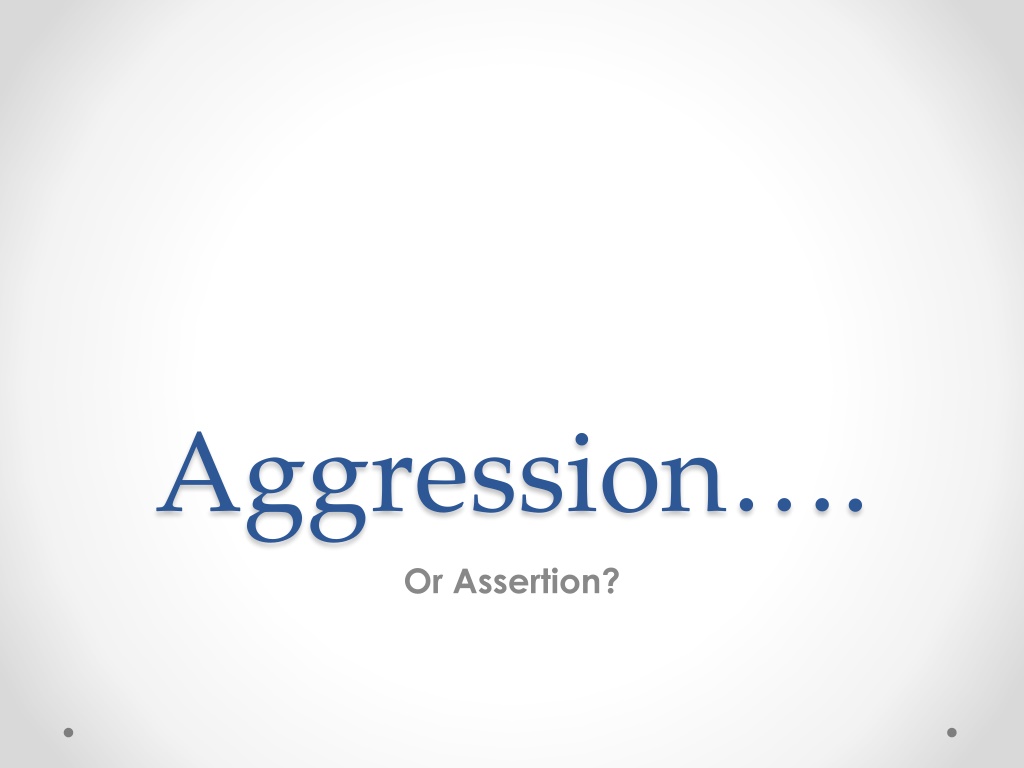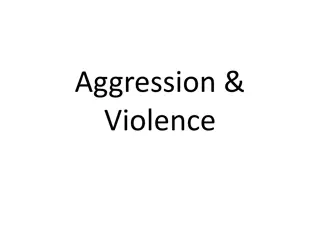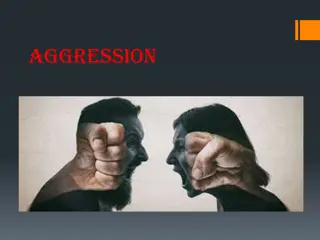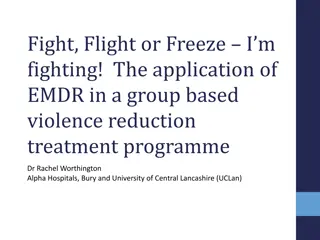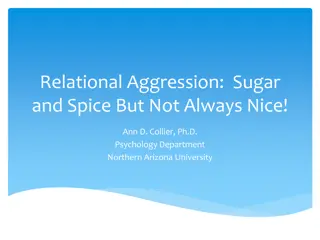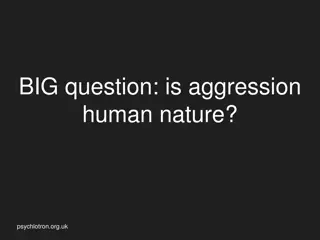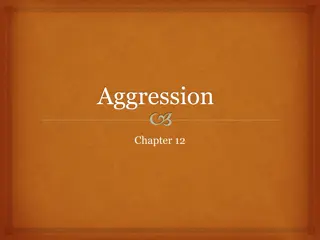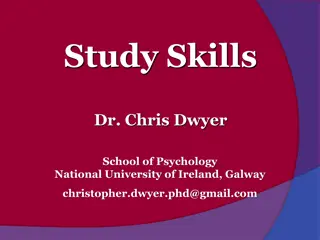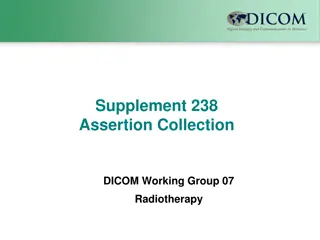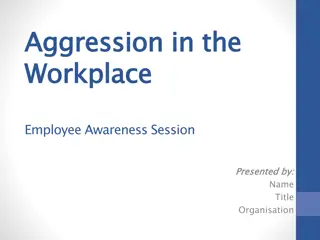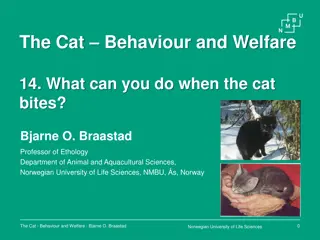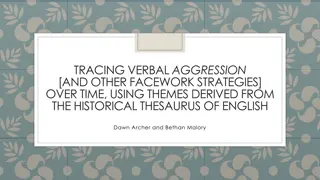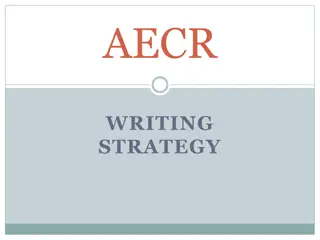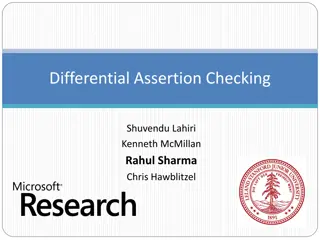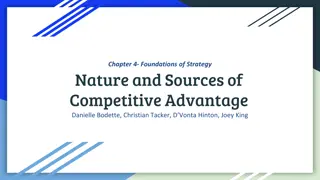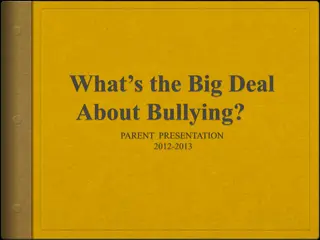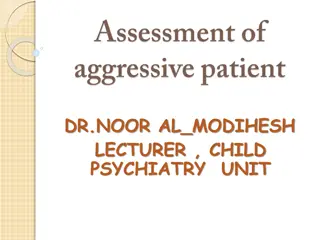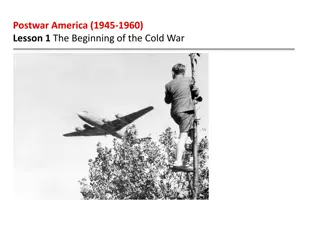Understanding the Dynamics of Aggression and Assertion in Competitive Environments
Aggression is intentional behavior aimed at harming others, while assertion is forceful yet non-harmful conduct within the spirit of competition. Factors like antecedents, perceived unfairness, and pressure to win can trigger aggression in sports. Recognizing the differences between hostile and channeled aggression is crucial for maintaining sportsmanship and team cohesion.
Download Presentation

Please find below an Image/Link to download the presentation.
The content on the website is provided AS IS for your information and personal use only. It may not be sold, licensed, or shared on other websites without obtaining consent from the author. Download presentation by click this link. If you encounter any issues during the download, it is possible that the publisher has removed the file from their server.
E N D
Presentation Transcript
Aggression. Or Assertion?
Task Write a definition for each Compare with a partner Write a new one based on both your ideas
Immediate thoughts on http://www.youtube.com/watch?v=p_st29mlQwU http://www.youtube.com/watch?v=QqtqsrKs6jo&fe ature=related http://www.youtube.com/watch?v=oD99VbFzqAg (1.30) http://www.youtube.com/watch?v=wiqCiZWSpcY http://www.youtube.com/watch?v=81Z_pNWjQbE
Aggression Aggression is any behaviour that is intended to harm another individual by physical or verbal means Bull, 1990 Aggression is any form of behaviour directed toward the goal of harming of injuring another living being who is motivated to avoid such treatment Baron
Whats the Difference? Aggression Assertion Channelled aggression Does not attempt to harm, strictly within spirit of the game Involves forceful, robust, functional play and focused upon completing skill successfully. Major aim is successful completion of task Non-hostile self protective mastery behaviour Parens, 1987 Hostile aggression Prime motive to harm opponent and chief aim to inflict injury Violates rules of any game and are dysfunctional Actions disrupt team performance and spoil group cohesion Hostile destructiveness Parens, 1988
Antecedent; A prior event which can lead to aggression. NB This is a CAUSE, not a THEORY of aggression
Actual or perceived unfairness during play Frustration at poor performance or losing Displaced aggression or outside influence Playing in a game where there had been previous ill feeling Excessive pressure to win Major Causes of Aggression in Sport Being on a losing team with a wide score margain Retaliation to an incident Reaction to hostile situation, eg hostile crowds Nature of the game, eg Ice Hockey is fast and collision style Copying behaviour of other players
New thoughts? http://www.youtube.com/watch?v=p_st29mlQwU http://www.youtube.com/watch?v=QqtqsrKs6jo&fe ature=related http://www.youtube.com/watch?v=oD99VbFzqAg (1.30) http://www.youtube.com/watch?v=wiqCiZWSpcY http://www.youtube.com/watch?v=81Z_pNWjQbE
Homework 3 Groups for next week Topics to split Instinct Theory of aggression & Social Learning Theory of aggression Frustration Aggression hypothesis & Aggression cue hypothesis Elimination of Aggression Presentation and worksheets/revision sheets to hand out. Must include good practical examples
Aggressive behaviour in sport can lead to a decrease in performance both for individuals and for the team. As a sports coach, explain how you would help team members eliminate aggressive tendencies. Use practical examples to illustrate your answer. (6)
